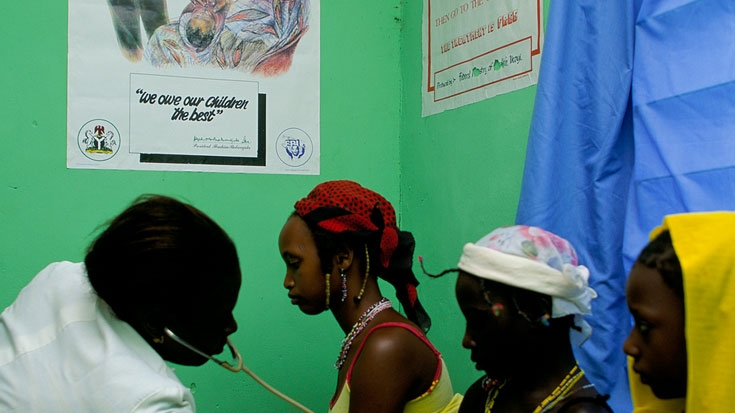Ministers said they recognized it is important for political leaders with finite periods in office to deliver on their commitments to citizens. Exercising political leadership in ensuring delivery is critical, they said.
In Rwanda, “the president’s message to ministers is very clear — I do not need good statements. Just deliver. Results will show,” said Gatete. Clear accountability was enforced through the performance contracts and cabinet reviews, he said.
Yuguda said Nigeria has also set up a performance management system based on key performance indicators developed by the president and the ministers. The National Planning Commission monitors the implementation and presents ministers’ performance scorecards to the president.
Some countries have established delivery units at the center of their government. Senegal’s delivery initiative is linked to the “Emerging Senegal Plan,” which covers 27 projects and 17 major reforms ranging from doing business to land management and energy. The Delivery Unit prioritized these to a more focused delivery program of five projects and three reforms, and progress on this subset of priorities is closely monitored and reported to the president at the weekly cabinet meeting.
Prioritization is also a difficult task for Ghana. “There were 265 priorities,” said Dr. Sulley Gariba, senior policy advisor to the president. “The question for us was how to narrow them down.”
The Ghana president’s delivery unit divided the priorities into two bundles. The “systemic and sector-specific deliverables” are to be led by ministers, and a small set of “catalytic deliverables” are championed by the president. The latter includes managing public wage bills, which requires presidential leadership to galvanize broad support and collective actions.
But the presence of a delivery unit is not the only way to drive delivery and demonstrate leadership commitment, said participants in the peer learning session. Citizen feedback is widely used in many countries. In fact, the wide use of social media and technology has further amplified the pressure for political leaders and governments to deliver.
In Rwanda, it is not just the focus from above, but also the pressure from the people that matters, according to Gatete.
“Through National Dialogue and National Retreat, citizen representatives from all walks of the life can ask questions about progress on government services delivery. … This public exposure and citizen perceptions can be more daunting than pressure from the top, and the combination of the two contributes to a delivery culture,” said Gatete.
In Nigeria, the presentation of performance scorecards by ministers to the president is sometimes covered by live broadcast on TV.
Ministers said they found this kind of peer-to-peer learning and exchange on the issue of delivery useful. Marcel Souza, Benin’s minister of development and economy, pointed to the need for a more aggressive program for Benin to tackle its poverty challenge, and expressed a strong interest in learning from his peers. Ghana Minister of Finance Seth Terkper said that ministers should be trained on leadership for delivery and results focus.
“The World Bank Group will continue to support the Global Network of Delivery Leaders, at both heads of state and ministerial levels, to share experience and learning about delivery to inspire and improve actions on the ground,” said the Bank Group’s Sanjay Pradhan, vice president for leadership, learning and innovation. Pradhan moderated the conversation and said he was inspired by the efforts in different countries, and the emerging community of countries and leaders committed to delivery.
“The World Economic Forum is glad to be a partner in convening this important discussion on ensuring well-designed policies are implemented effectively,” said Espen Eide, a managing director of the World Economic Forum and a former minister in the Norwegian government. “The Forum’s network, including the relevant experience from the private sector,can contribute effectively to the dialogue.”
Facilitated by the World Bank Group, the Global Network of Delivery Leaders is a peer-to-peer platform for shared learning and experience exchange among like-minded political leaders on exercising effective leadership for delivery. The network was formed in September 2013 by six heads of state from Albania, Ethiopia, Ghana, Haiti, Malawi, and Senegal.

